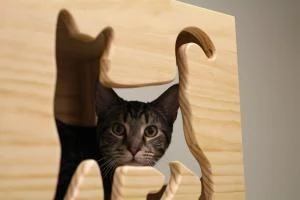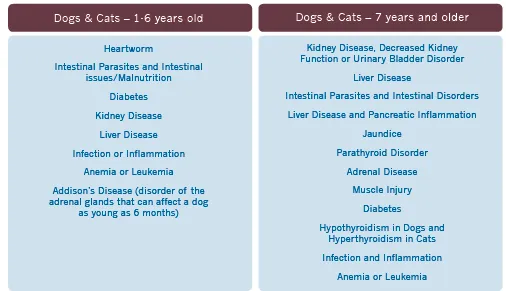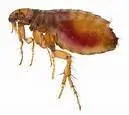Feline Physical Exam
Your cat’s examination starts with a look at the eyes to make sure they are clear with no cataracts or vision changes. Then we will look in the ear canals to check for any wax, ear mites, and signs of an ear infection or other problems. We will examine your cat’s teeth taking note of any tartar, periodontal disease or cavity-type lesions known as resorptive lesions. We will listen to your cat’s heart and lungs to check for any heart murmurs, abnormal rhythms or changes to lung sounds. Your cat’s abdomen will be palpated to check for any pain, masses or enlarged organs. We will check your cat’s skin and coat for any fleas,
signs of skin infection or hair loss, or dry skin. We will also assess your cat’s weight and body condition and feel his or her lymph nodes. We will also request that you bring a fresh stool sample so we can check for intestinal parasites. One thing we will not do is take your cat’s temperature unless he or she is ill. Recent studies show that cat’s become more stressed at the veterinary office if their temperature is taken. For an otherwise healthy cat, this is undue stress, so we no longer perform a temperature check on healthy cats and kittens. Though the physical exam takes only a few minutes to perform, it is a very thorough and important part of any preventive care visit with your cat. Please make sure to bring your cat to see us at least once a year to make sure he or she stays as healthy as possible.
Adult

An adult cat is any cat aged 1 year old to 7 years old. It is important to bring these cats to the hospital for annual wellness examinations and to keep up with their vaccinations – even if they are indoors only! Our doctors will do a full nose to tail examination and discuss your cat’s health and any risk factors for disease that they may have. Many cats in this age group begin to develop health issues such as arthritis, weight gain or loss and/or urinary issues. Our staff will educate you and your family on how to best care for your adult cat including nutritional consults, behavioral consults and environment enrichment.
Beginning yearly, routine blood work is important in detecting early onset underlying health issues such as diabetes, hyperthyroidism and kidney and liver diseases. PVH offers blood work packages for the adult cat that includes a pet wellness report that you complete online and submit to our doctors. This will give our doctors a full, comprehensive look at your feline friend – on the outside and to see what’s going on inside! – to make sure that your cat is healthy and happy.
Don’t forget to bring a stool sample to your cat’s annual wellness examination! It is pertinent to have stool samples checked regularly and de-worm your cat as appropriate since several parasites and worms are zoonotic, meaning that they can be passed from your cat to you and your family members!
Many diseases can be caught early and catching a disease early can make all the difference, adding years to your pet's life.
Did you know?
- If detected early, 75% of common disease in dogs and 63% of common diseases in cats can be prevented by dietary modifications alone over a one-year period.
- Kidney disease is one of the major causes of illness and death in dogs and cats, but symptoms do not usually appear until 2/3 of kidney function has been lost. If caught early, the animal can live with this condition for many years.
- If a liver problem is detected at early stage of disease and is administered proper treatment, the chance of your pet's recovery is in your favor.
- Early detection of diabetes is extremely important because an early therapy regimen can be more effective and easier on the animal. Detecting and monitoring diabetes early can also prevent damage to other organs.



